Ovid's Philemon And Baucis
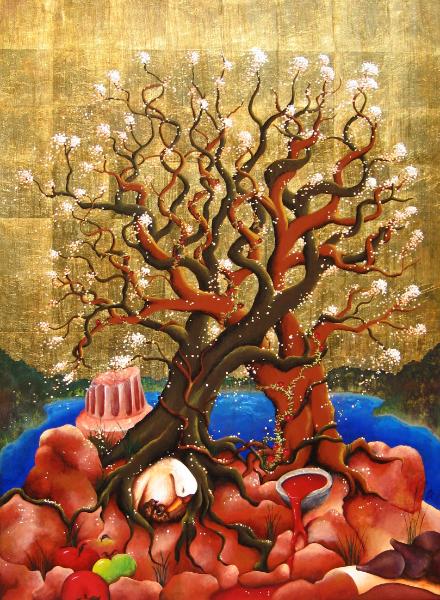
In his Metamorphoses , Ovid illuminated the myths of antiquity in a whimsical, yet beautiful, literary style called the elegiac couplet, which was originally established by Virgil. Ovid’s poetics became his own: a Latin verse style that has been revered, exalted and interpreted and retold from Chaucer to Shakespeare to Marlowe, Milton and Swift.
Ovid was born Publius Ovidius Naso in 43 BC. He was schooled in Rome and began writing great works as a young man: the Amores, the Heroides, the Ars Amatoria, the Remedia Amoris and Medea among them.
Ovid began the Metamorphoses around AD 1 and was almost completely finished writing them when he was suddenly exiled to the island of Tomis, in the Black Sea, in AD 8 by Augustus Caesar.
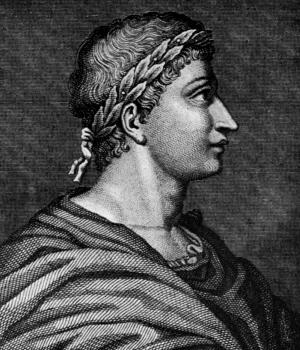
The exact nature of Ovid’s crime has never fully been explained; but, it seems that he was some how interlocked in a political schism, which Augustus deemed as an unacceptable indiscretion. The poet spent the rest of his life in exile, writing and also arguing his case in hopes of being pardoned and returned to Rome. But Ovid died at Tomis in AD 17.
"The Metamorphoses is without doubt the most witty and ingenious book that has come down to us from the ancient world." – E. J. Kenney
Scholars have indicated that the Metamorphoses were meant to be read continuously from the first story and epilogue in book I, to the last in book XV. Furthermore, that the entirety of the Metamorphoses myths cannot be fully understood until the very last is consumed.
Yet, the Metamorphoses have been broken down into categories as such: the transformation myths, the abduction myths, bird and nature tales, heroic tales, myths centering around Medea as well as myths in which humans rival gods.
The story of Proserpine, the Latin equivalent of the Greek Persephone, actually called The Rape of Proserpine, an abduction myth, is the most heart-wrenching tale in the entire literary canon. And yet, Ovid’s approach is steadfastly compassionate toward the human heart. The poet lovingly conveys the feelings of Proserpine and Ceres, her mother, as well as the emotions of the other women in the midst and indeed, the sad reaction of Earth and Nature itself when the girl is swept away from her mother by the King of hell.
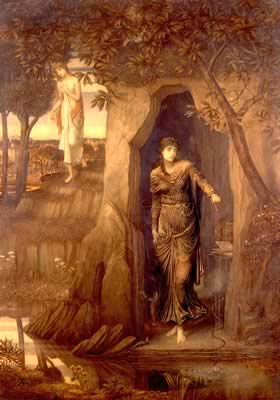
Philemon and Baucis
Philemon and Baucis might be placed in the category of happy tales with happy endings. There are very few of these in the Metamorphoses. So, to break from erudite instruction, I will begin in the middle, (Book VIII), with this tale of gods in disguise meeting humans and testing their good will. The story is being told to Theseus, who has wandered into a grotto of rivers. The rivers are personified so that Lelex, “mature in years and mind”, is telling the tale among nymphs, other rivers and Theseus.
Lelex begins;
"The power of heaven is great and has no bounds;/ Whatever the gods determine is fulfilled./ I give you proof. Among the Phrygian hills/ An oak tree and lime grow side by side,/ Girt by a little wall. I saw the place - "
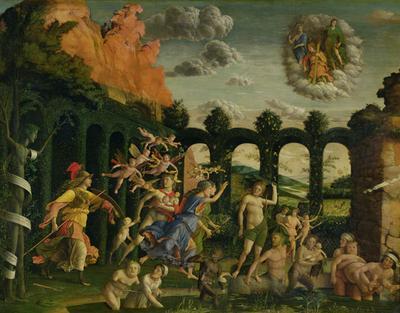
Lelex is making a case in favor of the gods, as their reputation has been scoffed at by one of the listening attendees. In Lelex’ tale, the two gods, Jupiter and Mercury, the Latin equivalent of Zeus and Hermes, referred to as ‘the heavenly ones’, roam the quaint land “in mortal guise”, searching for a place to rest; but, every inhabitant’s door is shut to the strangers in disguise. Finally, they reach the door of an elderly couple, Philemon and Baucis.
The old couple welcome the strangers, not knowing they are gods, and then Baucis begins preparing a meal for them. She has the guests sit by the fire, spreading a “simple rug” on a rustic bench, as she prepares the cabbage, which her husband, Philemon, has retrieved from the ‘spring fed garden’, just outside their back door.
A sumptuous, yet frugal, and traditional meal is provided by the unassuming, old couple. The comforts of home are emphasized, however modest, with the goddess Minerva evoked in reverence for the beauty of the food, which comes from the earth;
"Then olives, black and green, she brings, the fruit/ of true Minerva, autumn cherry plums -"
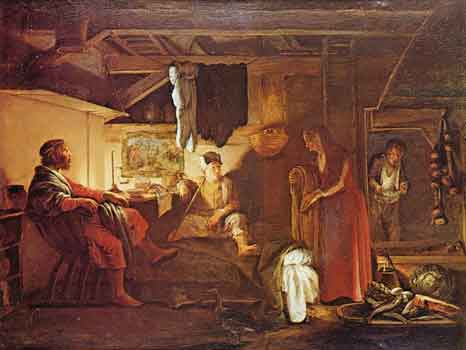
The poetry is rich with lovely details of earthenware bowls, the aroma of steam coming from the feast, and the ‘zeal’ of happiness radiating from their faces. Then the old, cottage-dwellers notice that the wine-bowl seems to fill itself up every time it is drained, right there at the table. Philemon and Baucis begin to realize that something mysterious is taking place. They bow their heads and join ‘in timid prayer’.
There is the graceful imagery of the goose flying up from the boiling pot, out toward the heavenly ones themselves, ‘swift-winged’. Then the deities admit: “We two are gods”, they say. And they explain to the couple the evilness of their neighbors and how they shall all be destroyed, but that they, Philemon and Baucis, shall be spared for their humble generosity.
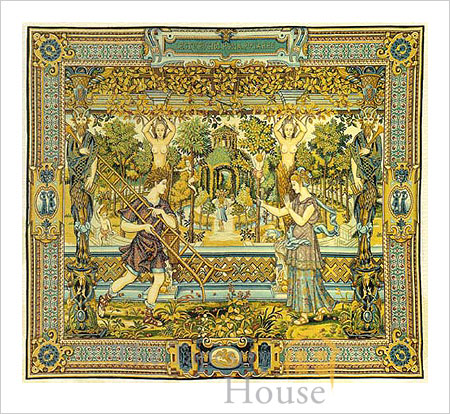
Following the gods, Philemon and Baucis hobble up to the furthest hill and turn to see the land consumed in a great flood, and even as they bewail the loss of their little cottage, it is transformed before their eyes into a gleaming temple with columns and a gold roof.
Then one of the gods is revealed as ‘Saturn’s son’, who asks gently whatsoever the old couple wish to have. After conversing quietly, Philemon and Baucis answer that they would like to be the priests and guardians of the gods, to keep after the temple, and when the time has come to depart their life, they wish to never see the other buried, but to transform together into the afterlife at the same hour.
And so, after the remaining years of their lives have been spent tending the temple together in contented peace, Philemon and Baucis, at the very same hour, transform into two glorious trees – their leaves fluttering together on entwined branches and their trunks joined as one.
The teller of the tale then concludes his argument for the gods by saying:
"They now are gods, who served the Gods;/ To them who worship gave is worship given."






